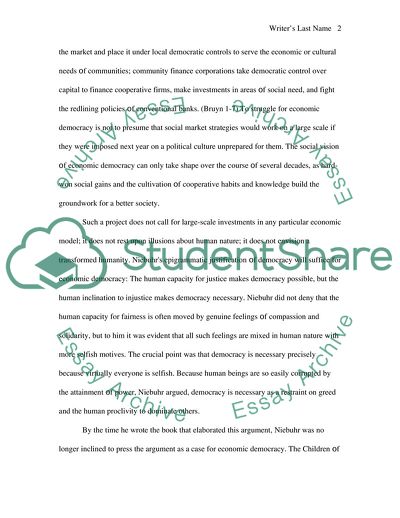Cite this document
(To What Extent Do Markets Pose a Threat to Democracy Term Paper - 3, n.d.)
To What Extent Do Markets Pose a Threat to Democracy Term Paper - 3. https://studentshare.org/politics/1711926-to-what-extent-do-markets-pose-a-threat-to-democracy
To What Extent Do Markets Pose a Threat to Democracy Term Paper - 3. https://studentshare.org/politics/1711926-to-what-extent-do-markets-pose-a-threat-to-democracy
(To What Extent Do Markets Pose a Threat to Democracy Term Paper - 3)
To What Extent Do Markets Pose a Threat to Democracy Term Paper - 3. https://studentshare.org/politics/1711926-to-what-extent-do-markets-pose-a-threat-to-democracy.
To What Extent Do Markets Pose a Threat to Democracy Term Paper - 3. https://studentshare.org/politics/1711926-to-what-extent-do-markets-pose-a-threat-to-democracy.
“To What Extent Do Markets Pose a Threat to Democracy Term Paper - 3”. https://studentshare.org/politics/1711926-to-what-extent-do-markets-pose-a-threat-to-democracy.


